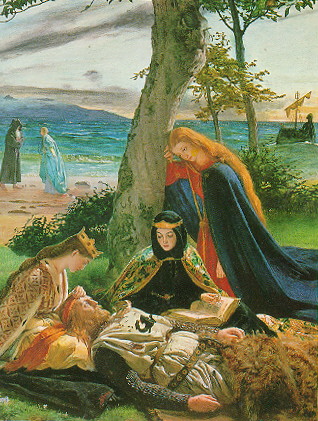"It all started with a big bang didn’t it ?" This guest blog was written by Victor Ince who is a member of the Summerland United Church. Victor grew up in Northern Ireland and recently retired as a Project Manager with the Interior Health Authority in British Columbia, Canada. Victor's reflection on the aphid causes him to ask if anything else is required for unconditional acceptance of an inexplicable universe.
I’m in awe! Actually I’ve been in awe all my life. I’m really just a big kid – and I don’t want to change.
I spent my earliest years in a small town on the north coast of Ireland. My earliest recollections center around two things which still fascinate me today - motorcycles and the seashore. Many youthful hours were spent chasing crabs and small fish in tide pools – collecting shells and making sandcastles. I was fascinated by waves crashing on rocks – gulls swooping in the breeze – just how do they do that I wondered?
My home town hosted a major motorcycle road race every year and my Dad always took me to watch these 'heroes' of mine in their leathers and helmets as they roared through the town streets. The sights and the crowds were unlike anything I would experience for the rest of the year - the noise was music to my boyhood ears. I have never lost this fascination with motorcycles and an awe of their speed and stability. I have learned the science of the boyhood mystery that explains why motorcycles to not fall over but it still remains a hard thing to grasp.
Every day I see things that just fill me with awe – simple things like the red winged blackbirds by the highway and the ospreys at Trout Creek. I wonder how they build their nests on top of those distant power poles. I certainly couldn’t do it and I’m a being with a 'superior' intellect.
I see evening rainbows and marvel at their beauty; I see lightning and marvel at its power. I could look at ladybugs and aphids going about their work all day and while watching them pause momentarily to admire the delicate beauty of 'their' roses. The lowly dandelion pushing its cheeky face out of that crack in yonder driveway fills me with amazement.
There is so much in daily life to thrill, amaze, comfort and educate one that it leaves me perplexed how we can usually trundle through life never noticing and never paying attention to the world's wonders that surround us. Even as we notice these wonders how often do we just accept their embracing of us as 'normal' and not especially noteworthy.
When I turn my thoughts to the greater universe I can not conceive the size of the world on which we all live and the infinite size of the space in which we float in a perfect rhythm with all the other celestial bodies -everything in its special place; everything in a magnificent order. I know how often in a thousand years a comet or a meteor shower will show up – and show on time it always does.
As I consider the 'big' questions for which scientists claim to provide 'answers' I hear echoing in my mind that it all started with a big bang or did it? No-one has given me an explanation of what blew up and I still seek to have someone explain to me in simple terms - just what blew up and where did this material universe came from? The universe is constantly expanding - into what is it expanding?
As I live in awe of how one small aphid goes about its work I sense that I should be in greater awe of this thing we call our universe. Yet, somehow the aphid is more important than the universe of which it is so miniscule a part. If I am destined to forever remain awed with the mysterious works of an aphid will I ever comprehend the even greatery mystery of the universe?
I hope I shall continue through this journey of life in awe of aphids, automobiles, motorbikes, moonbeams, bears and birds. These gifts from the universe continue to re-awaken in me daily that same awe first aroused within my boyhood soul when I saw that tiny crab scuttle under a rock and brave men on motorcycles roar down “my home street”.
Never do I want to 'grow up' if it means losing this feeling – I want and need this spirit within me each and every day.
As for the beginning and the end of time, or the size and shape of the universe, or what may exist beyond the boundaries of my time-space continuum, I leave to the higher power who understands what the creation of such a world really means while I just continue to marvel at each and every aphid.
The Big Bang - the source for awe of an aphid?Posted June 15, 2007
 First Things has published a dialog between Francis J. Beckwith and Robert T. Miller on the criticism by Richard Dawkins, author of The God Delusion, of Kurt Wise shown on the left who gave up a brilliant scientific career for a literal interpretation of the bible. Beckwith is an associate professor of philosophy & church-state studies, Baylor University while Miller is an assistant professor at the Villanova University School of Law.
First Things has published a dialog between Francis J. Beckwith and Robert T. Miller on the criticism by Richard Dawkins, author of The God Delusion, of Kurt Wise shown on the left who gave up a brilliant scientific career for a literal interpretation of the bible. Beckwith is an associate professor of philosophy & church-state studies, Baylor University while Miller is an assistant professor at the Villanova University School of Law.

 Patton Dodd raises an interesting theological question in a
Patton Dodd raises an interesting theological question in a 
 In a June 05, 2007 article in Scientific American JR Minkel asks:
In a June 05, 2007 article in Scientific American JR Minkel asks: